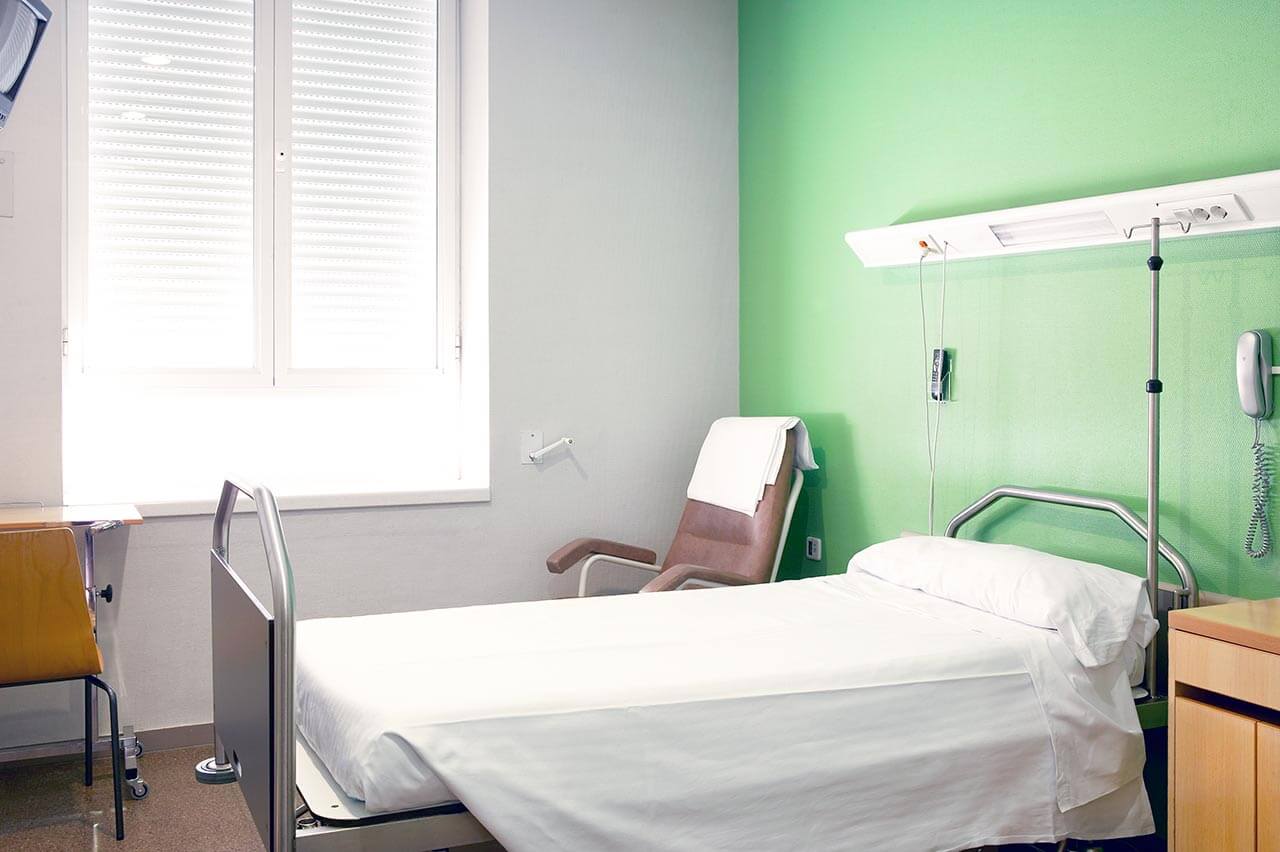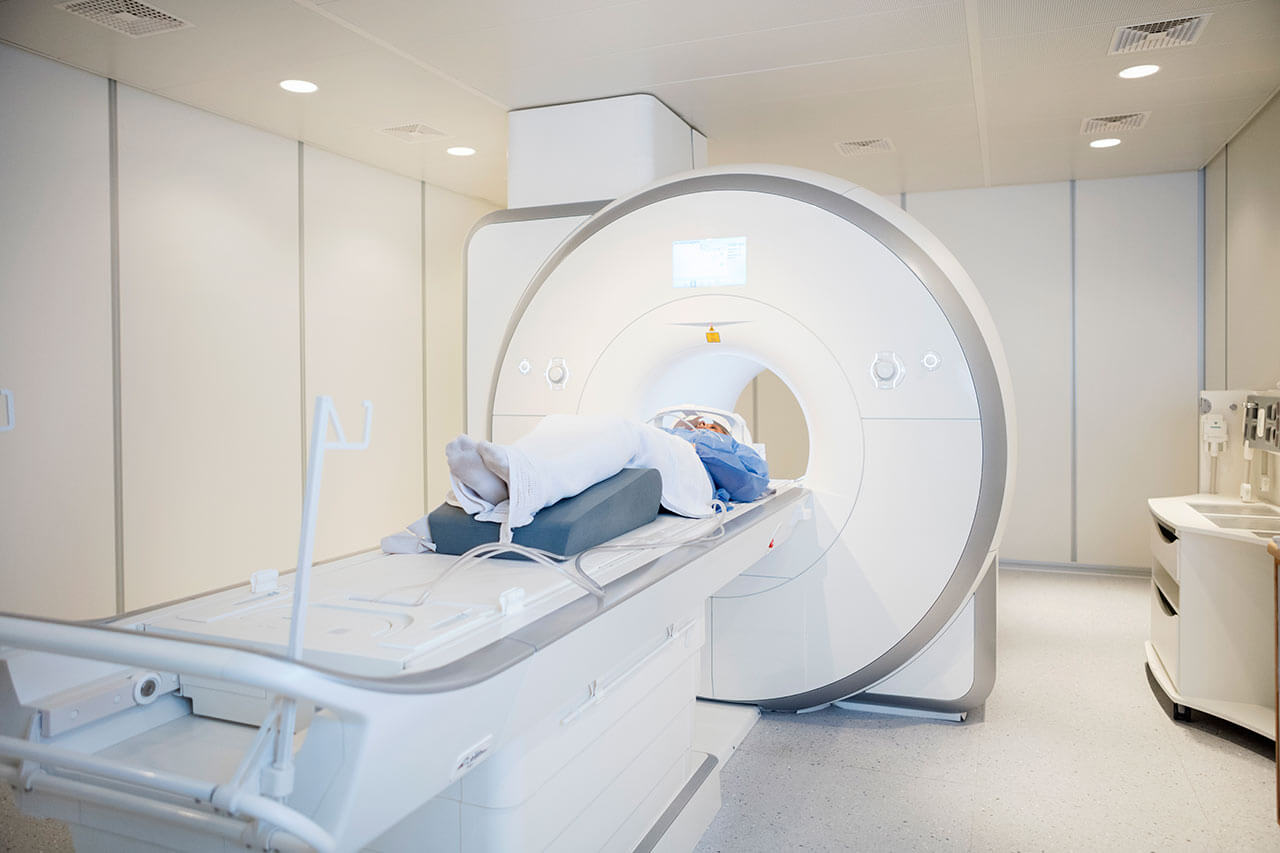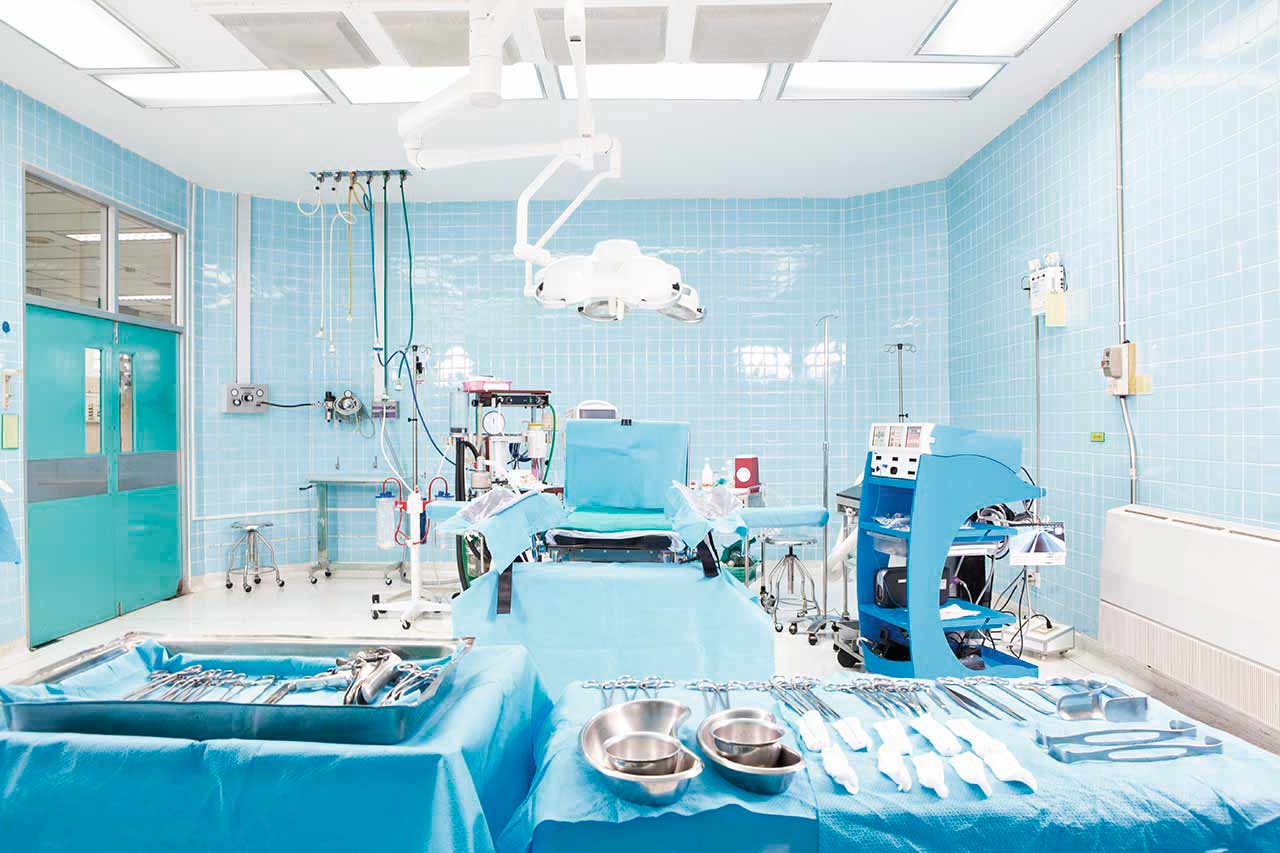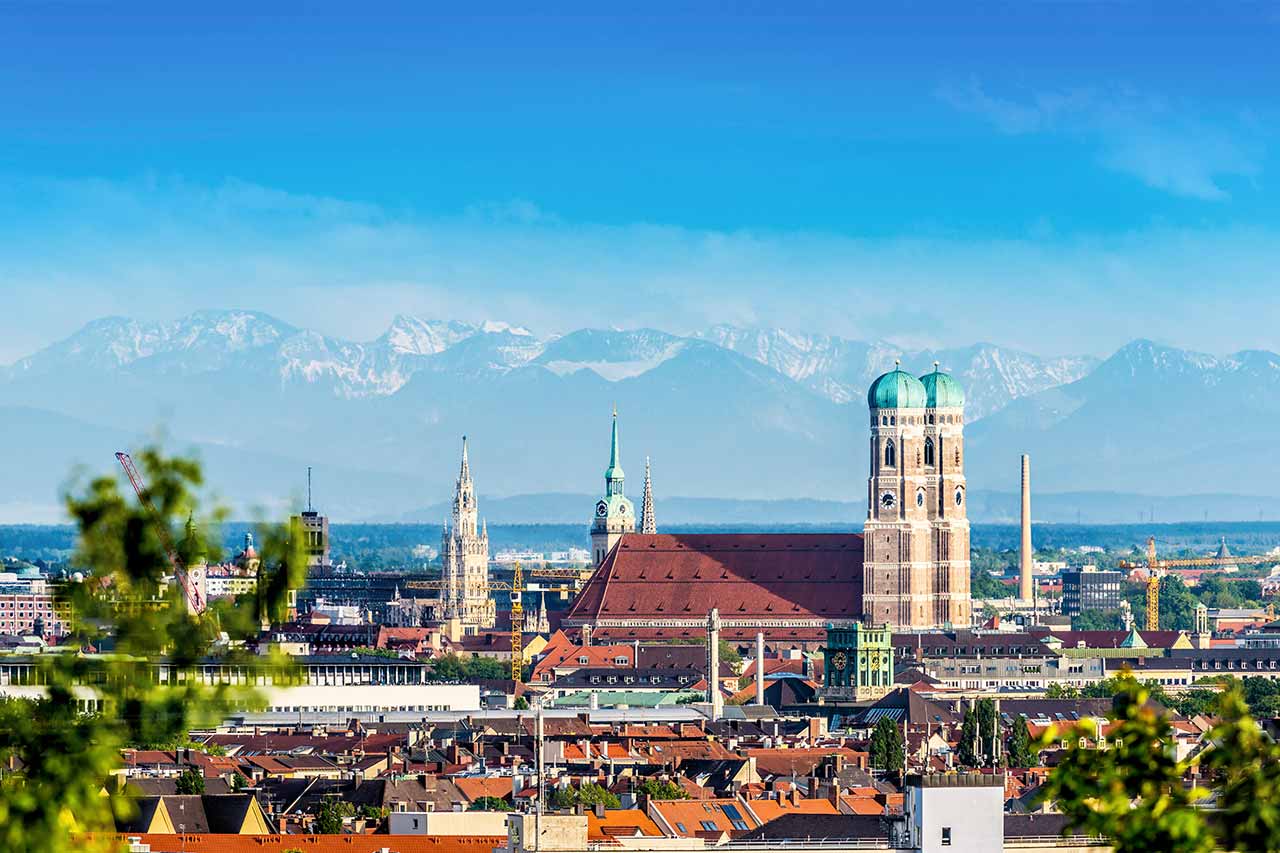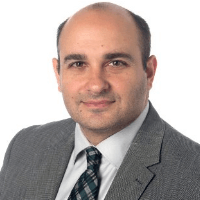
The program includes:
- Initial presentation in the clinic
- clinical history taking
- physical examination
- laboratory tests:
- complete blood count
- biochemical analysis of blood
- Lipid metabolism (HDL/LDL, cholesterol,
triglycerides Lip(a), homocysteine) - blood coagulation analysis (aPTT, PT, INR)
- inflammation indicators (CRP, ESR)
- metabolic status (uric acid, total glucose, HbA1c)
- cardiovascular disease risk markers
- kidney function test (creatinine, urea)
- TSH
- doppler/ duplex receptacles of lower extremities
- angio-MRI from aorta and of lower extremities
- duplex peripheral arteries
- preoperative care
- necrotomy followed by transplantation of skin
- daily wound care
- blood transfusions (if needed)
- symptomatic treatment
- control examinations
- the cost of essential medicines and materials
- nursing services
- full hospital accommodation
- developing of further guidance
Required documents
- Medical records
- Doppler ultrasound/duplex scanning (if available)
- Angiogram (if available)
Service
You may also book:
 BookingHealth Price from:
BookingHealth Price from:
About the department
The Department of Vascular Surgery at the University Hospital of Ludwig Maximilian University of Munich offers the full range of diagnostic services and surgical interventions for patients with diseases of the arteries, veins, and lymphatic vessels. The department's doctors have excellent skills and deep knowledge in the field of vascular surgery, ranging from complex interventions on the aorta to advanced endovascular methods for treating varicose veins using ultrasound. In close cooperation with the specialists from the Center for Vascular Diseases, the department's doctors provide an individual and interdisciplinary therapy for patients with severe vascular and concomitant diseases. The department has prestigious quality certificates from the German Society of Vascular Surgery (DGG) and a certificate from the Institute for Quality and Patient Safety (BQS). The health of patients is in the safe hands of highly qualified specialists, for whom it is important that a patient receives the most sparing and effective treatment in a pleasant atmosphere. The Head Physician of the department is Prof. Dr. med. Nikolaos Tsilimparis.
The department's doctors always devote enough time to examining a patient to make an accurate diagnosis, which largely determines the success of the upcoming treatment. The medical facility has well-equipped diagnostic rooms with the possibility of performing B-mode sonography, Doppler ultrasonography, duplex sonography, oscillography, photoplethysmography, digital subtraction angiography and many other tests.
One of the primary focuses of the department's clinical practice is carotid artery stenosis treatment. As a rule, the pathology is detected incidentally during the diagnostic examination for other complaints, since carotid stenosis does not cause any symptoms at its early stages. However, the pathology is quite dangerous, as it often provokes the development of a stroke, which in turn may cause partial or complete paralysis, impaired speech, memory, or even death. The main and most effective method of eliminating carotid artery stenosis is stent implantation. The essence of the technique is to implant a stent (a special metal frame) in the lumen of the narrowed section of the artery. Doctors can also perform an endarterectomy, an operation to remove atherosclerotic plaques from the carotid artery. A physician chooses the optimal type of surgical intervention based on a patient's particular clinical case.
The department's surgeons often treat aortic aneurysms, which are characterized by the dilation of a certain part of the aorta due to stretching or thinning of its walls. A patient is usually unaware of the presence of this disease, since it causes practically no symptoms. When the aneurysm reaches a large size, the risk of its tear increases significantly, and if the patient does not receive any qualified emergency care, in many cases, a fatal outcome occurs. The department's team of doctors offers both minimally invasive interventions and open surgery. Stent implantation is preferred whenever possible. In particularly complex clinical cases, vascular surgeons perform an open operation (interventions for thoracic aortic aneurysms are performed in cooperation with cardiac surgeons).
The department's specialists also successfully perform the surgical treatment of varicose veins. The desired result can often be achieved using conservative methods (drug therapy, the use of ointments and gels, or compression therapy) and minimally invasive interventions (endovenous laser coagulation, foam sclerotherapy, radiofrequency, and laser obliteration). Advanced stages of the disease require more serious treatment, namely surgery. The team of surgeons at the medical facility successfully performs a phlebectomy, during which varicose veins are removed. Flap plastic surgery may be performed after the operation to achieve a good aesthetic result, if required.
The department's diagnostic options include:
- Diagnostics of arterial diseases
- Dopplerography
- B-mode sonography
- Duplex sonography
- Color duplex sonography
- Percutaneous microcirculation assessment
- Diagnostics of venous diseases
- Arterial oscillography
- Light reflection rheography
- Photoplethysmography
- Phlebotonometry
- Intraoperative diagnostics
- Blood flow velocity Doppler measurement
- Digital subtraction angiography
- Intraoperative neuromonitoring with a continuous recording of sensorimotor evoked potentials
- Intraoperative neuromonitoring using transcranial dopplerography
- Other diagnostic examinations
The department's surgical services include the following options:
- Diagnostics and surgical treatment of aortic aneurysm
- Minimally invasive interventions with stent implantation
- Open interventions on the thoracic aorta (in collaboration with the Department of Cardiac Surgery)
- Diagnostics and surgical treatment of occlusive peripheral arterial disease
- Balloon dilatation (including for the smallest blood vessels)
- Operations (for example, elimination of calcification and bypass surgery) on the blood vessels with implanted port systems
- Diagnostics and surgical treatment of carotid stenosis
- Preventive drug therapy
- Stent implantation
- Endarterectomy
- Diagnostics and surgical treatment of varicose veins
- Stripping (removal of large varicose veins)
- Minimally invasive techniques (for example, sclerotherapy)
- Radiofrequency ablation
- Laser ablation
- Phlebectomy
- Dialysis access formation
- Other medical services
Curriculum vitae
Professional Сareer
- Since 01.05.2015 Deputy Director of the German Aortic Center Hamburg and Senior Physician in the Department of Vascular Medicine at the University Heart Center Hamburg.
- 02.2015 Board certification in Vascular Surgery, Medical Association of Hamburg.
- 09.2014 Member of the European Board for Vascular Surgery (FEBVS).
- 01.02.2013 - 30.04.2015 Acting Head of the Department with Additional Responsibilities, Department of Vascular Medicine, University Heart Center Hamburg.
- 12.2014 Theoretical basis of the specialty in Radiation Protection.
- 15.07.2012 - 31.01.2013 Research Fellow, board certification in Surgery, Department of General, Abdominal, Vascular and Thoracic Surgery, Charite University Hospital Berlin, Campus Mitte.
- 08.08.2011 - 15.07.2012 Research Fellow in the Department of Vascular Surgery and Endovascular Therapy, Emory University, Atlanta, Georgia, USA.
- 04.2007 - 08.2011 Research Fellow, Department of General, Abdominal, Vascular and Thoracic Surgery, Charite University Hospital Berlin, Campus Mitte.
- 03.2011 Board certification in Surgery, Berlin Medical Association.
- 04.2005 - 03.2007 Employee of the Department of Surgery at the Francis Clinic ( Hospital of the Charite University Hospital Berlin).
Academic Сareer
- 30.09.2014 Habilitation in Vascular Surgery, University of Hamburg. Subject: "Complex endovascular aortic surgery. Patient, anatomy and technique".
- 20.11.2009 Thesis defense with honors.
- 08.2011 - 07.2012 Postdoctoral studies (study of fenestrated and branched endografts for the treatment of aortic diseases), Faculty of Medicine, Emory University, Atlanta, Georgia, USA.
- 1998 - 2004 Human Medicine studies at the Aristotle University of Thessaloniki (Greece) and at the Charite. Admission to medical practice.
- 1997 - 1998 Biology studies at the Aristotle University of Thessaloniki, Greece.
Internships Abroad
- 13.10.2014 - 23.10.2014 Internship in the Department of Vascular Surgery and Endovascular Therapy, University of California, San Francisco.
- 23.10.2014 - 01.11.2014 Internship in the Department of Vascular Surgery and Endovascular Therapy, Mayo Clinic, Rochester, Minnesota, USA.
- 06.12.2010 - 10.12.2010 Internship in the Department of Vascular Surgery and Endovascular Therapy, Emory University, Atlanta, Georgia, USA.
- 23.11.2009 - 04.12.2009 Internship in the Department of Vascular Surgery and Endovascular Therapy, Mayo Clinic, Rochester, Minnesota, USA.
- 08.2004 - 09.2004 Internship in the Department of Vascular Surgery, Hospital Universitari Germans Trias i Pujol, Barcelona, Spain.
- 07.2001 - 08.2001 Internship in Cairo, Egypt, Department of Emergency Medical Care at Ain Shams Hospital (IFMSA Exchange Program).
Prizes and Scholarships
- 2007 Poster Award of the German Society for Vascular Surgery.
- 2011 Poster Award at the Veith Symposium in New York.
- 2012 Foreign Scholarship of the Ernst Jeger Society.
- 2012 Award "Sessions on difficult cases" of the Congress of the European Society for Vascular Surgery in Bologna.
- 2013 Video Awards Session of the Congress of the European Society for Vascular Surgery in Budapest.
Memberships in Professional Societies
- German Society of Surgery (DGC).
- German Society for Vascular Surgery (DGG).
- American College of Surgeons.
- European Society for Vascular Surgery (ESVS).
- Society for Vascular Surgery.
- North German Society of Surgeons.
- Ernst Jeger Society.
Review Activities
- Journal of Endovascular Therapy.
- Annals of Vascular Surgery.
- Langenbecks Archives of Surgery.
- American Journal of Kidney Diseases.
- Gefäßmedizin Scan.
- Gefäßchirurgie.
Photo of the doctor: (c) LMU Klinikum
About hospital
According to the Focus magazine, the University Hospital of Ludwig Maximilian University of Munich is regularly ranked among the best medical institutions in Germany!
The hospital is the largest multidisciplinary medical facility, as well as a leading research and training center in Germany and Europe. The hospital is proud of its bicentenary history and tirelessly confirms its primacy at the national and international levels. The outstanding quality of medical care is complemented by highly productive research activities, thanks to which many effective diagnostic and therapeutic methods, saving people’s lives, have been presented in medical practice.
The medical facility includes two main buildings, Grosshadern and Innenstadt. The hospital has 29 specialized departments, 53 interdisciplinary centers, 11 institutes, and many sections. More than 500,000 patients are treated here every year, which indicates the hospital's excellent reputation. A large and highly professional medical team, consisting of 1,800 doctors and 3,300 nursing staff, works for the benefit of patients. The hospital has 2,000 beds to accommodate patients.
The hospital's infrastructure deserves special attention: advanced diagnostic equipment that allows doctors to detect the slightest pathological changes in the human body, the latest operating rooms with highly efficient monitoring systems, robot-assisted surgical systems that facilitate sparing operations, and proper postoperative care.
Excellent technical resources and highly professional medical staff are undoubtedly the hospital's pride, but the medical facility also pays attention to the patient's comfort and to a humane attitude toward their life situation. When providing the necessary medical care, doctors and nursing staff always show a friendly attitude, inform patients in detail about the upcoming diagnostic and therapeutic procedures, gladly answer all questions of interest to patients, and provide moral support during the therapeutic process.
The hospital has many prestigious quality certificates, including a DIN EN ISO 9001 certificate, an IQM certificate, an endoCert certificate, certificates from the German Cancer Society (DKG) for treating various types of cancer, the German Cardiac Society (DGK), the German Society for Orthopedics and Trauma Surgery (DGOU), etc. Thus, patients can count on the best possible treatment outcome due to the use of the most effective and, at the same time, sparing therapeutic techniques.
Photo: (с) depositphotos
Accommodation in hospital
Patients rooms
The patients of the University Hospital of Ludwig Maximilian University of Munich live in comfortable, spacious, single and double patient rooms with a modern design. Each room is equipped with an ensuite bathroom with a shower and toilet. The furnishing of a standard patient room includes a comfortable bed, the position of which can be adjusted using the remote control, a locker for storing personal belongings, a TV, and a telephone. Also, if desired, you can connect to the Internet. In addition, patients can opt for enhanced-comfort rooms, with a safe, a fridge, and upholstered furniture.
The hospital has an excellent infrastructure. The medical facility’s area houses a bank, ATMs, a hairdresser, shops with a wide range of food, drinks, newspapers, magazines, and personal hygiene items, play areas for children, and a beautiful garden for walking, etc.
Meals and Menus
The patient and his accompanying person are offered a daily choice of three menus, including a vegetarian one. If you are on a specific diet for any reason, you will be offered an individual menu. Please inform the medical staff about your dietary preferences prior to the treatment.
Further details
Standard rooms include:
Religion
Religious services are available upon request.
Accompanying person
Your accompanying person may stay with you in your room or at a hotel of your choice during the fixed program.
Hotel
You may stay at a hotel of your choice during an outpatient program. Our managers will help you to choose the best option.
The hospital offers a full range of laboratory tests (general, hormonal, tests for infections, antibodies, tumor markers, etc.), genetic tests, various modifications of ultrasound scans, CT scans, MRI and PET/CT, angiography, myelography, biopsies, and other examinations. Treatment with medications, endoscopic and robotic operations, and stereotaxic interventions are carried out here, modern types of radiation therapy are also used. The hospital offers patients all the necessary therapeutic techniques.
- Allogeneic bone marrow transplantation
- Microsurgical transplantation of head and neck tissues
- Microsurgical resection of brain tumors with intraoperative fluorescence
- Minimally invasive treatment of spine pathologies
- Joint replacement with postoperative rehabilitation (fast track program)
Patients with benign and malignant neoplasms of various localizations, pathologies of arteries and veins, herniated discs, osteoporosis, congenital and acquired pathologies of the musculoskeletal system, benign and malignant pathologies of the mammary gland, and other pathologies.
Which specialties of the University Hospital of Ludwig Maximilian University of Munich are the best?
- Interventional and diagnostic neuroradiology
- Vascular surgery
- Cardiac surgery
- Mammalogy
- Gastroenterology and hepatology
Over 1,700 highly qualified doctors work at the hospital.
